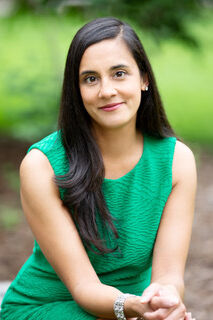- Fellow Highlights
Ulcca Joshi Hansen: How I’m Shaping Culture
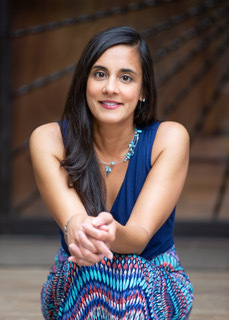
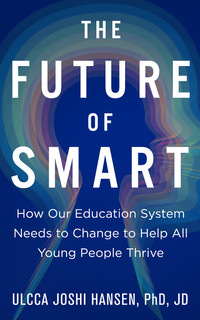
Author and educational thought leader Ulcca Joshi Hansen put her 20-year career in education to work in her new book The Future of Smart: How Our Education System Needs to Change to Help All Young People Thrive, which came out in September. In the book, Ulcca traces the deep roots of America’s dominant approach to education, illuminates why so many reform and innovation efforts over the last three decades have fallen short, and proposes a path forward. Ulcca was born in Newark, New Jersey, and was raised in Tanzania and New Jersey. Her experience as an English-language learner and first-generation college graduate informs her perspectives on what it means to build an education system that works for all young people. We caught up with Ulcca to ask her how she is shifting the culture of education in the United States.
You’ve written a new book that addresses our educational system and our culture’s value of being “smart.” When you were growing up, what were you like as a student? What did being “smart” mean to you?
Growing up I was pretty quiet and a focused student. Even though English was my second language, I was highly verbal and learning new languages has always come relatively easily for me. School in America had not yet ramped up to the level of intensity students now experience, so I found elementary and middle school pretty straightforward. I was the kid who would finish the class assignment and homework quickly and then read for the rest of class. I internalized the idea that I was school “smart” early on. Report cards, parent-teacher conferences, these were all relatively positive experiences. Social “smart” less so—I was introverted and struggled to navigate the personalities and inter-personal dramas of my peer group.
I had parents who impressed on me that learning was not just about school. We were lower middle class, but we travelled internationally to see family; I spent half a dozen summers abroad before the end of high school on exchange programs; earned a black belt and took part in community theater. My dad would ask me to write about what I had learned. As I got older, I came to see school assignments as invitations to explore things that interested me and to see where those interests took me rather than seeing it as something annoying that a teacher assigned. For example, I had a middle school teacher who wanted us to learn to write research papers.
At the time I was super into extrasensory perception, reincarnation, witchcraft—so I did a bunch of papers on those topics over the course of a year and a half. Neither my parents nor my teacher discouraged me. Those projects led directly to my interest in better understanding our brains: how we learn, how our experiences shape us, and what we are and are not aware of when it comes to our perception and capabilities. Reading about the era of witch trials also piqued my interest in the period of history I went on to study for my doctorate. Reflecting on those early experiences and where they led me was an important part of how I came to the classroom as a teacher, the kind of experiences I hoped to create for my students. Bumping up against how hard the system made it to create such experiences set me on the professional path I have taken since graduating college.
In the book you describe yourself as a “third culture kid”—can you describe what that is and why the term resonated with your own experiences?
I first heard this term a few years ago. It refers to anyone raised in a culture that’s not their parents’ native culture, but who also lived in a third culture during a significant part of their formative childhood or adolescent years. My mother and father are ethnically Indian but were both born and raised in Tanzania by families who migrated from the Indian subcontinent during the height of British colonial rule. Though I was born in the US, I spent my early childhood in Tanzania with my extended family. I spent a large part of my life between the ages of six and thirty living and studying outside the US—I spent time in Botswana, India, Germany, England, France, and the United Arab Emirates.
The literature about third culture kids describes us as people who learned to move between cultures and adapt before we internalized any sense of belonging—“cultural hybrids” or “global nomads.” We are adept at building relationships across cultures and identities, in part because our identities are more diffuse, or more composite. The downside is that we essentially belong nowhere. We see and experience cultures differently from those who have lived inside them. Delving into the literature in this area helped me make sense of a feeling I feel I have lived with my entire life—somehow existing right on the edge of the inside of communities. My background is no doubt part of why I was so drawn to schools that make identity and belonging a central part of their work. And the lens of cross-cultural nomad is an important part of how I explore education.
Now, you have your own kids—what are some of the intentional choices you’ve made about how you educate your children?
As a parent I struggle with the tension I feel between what I want education to be about, and how the game of education in America is actually played. I know in my heart that the kind of educational experiences I have spent decades researching and advocating for are far more likely to produce healthy, well-adjusted young adults who are prepared for the world of tomorrow. But I also know that my children live in a culture where they are internalizing the narrow definitions of capability, “smartness” and success that the game promotes.
We’ve moved around a lot and committed to staying in the public education sector and so we have not always been able to find programs that exemplify the ideal I would like. However, I take comfort in the fact that the kind of education I want them to have begins first and foremost with a mindset about learning and finding purpose and meaning in what they do as learners. Regardless of where our children are in school, we have tried to foster in them a sense of curiosity that enables them to create a purpose for themselves. We try and identify teachers, counselors, mentors—inside and outside of school—who can support them in doing that as well.
Finally, we do block and tackle some of the things schools do that make no sense: I refused to have my children do homework before sixth grade; we will sometimes take them out of school to travel with us for work or events that we think matter reminding them that learning happens everywhere; we give them mental health days; and we don’t freak out about their grades if we know they have been putting in the effort. I remember getting two marking periods of Fs in geometry in high school and still appreciate that my parents assured me they knew I was doing my best and not to worry about it. I’ve done just fine despite those grades, and my kids will, too.
What school systems in the United States are you most excited about right now? In other words, are there any systems that you think are leading the way?
In the book I present a framework that invites people to think about schools in three buckets that describe the orientation of a school when it comes to education: (1) conventional; (2) whole child/innovative reform, and (3) human-centered. I am most excited about the pockets of practice we can find in the final bucket of schools—human-centered—which are scattered in communities around the country. Most of us who live in urban or even wealthier suburban areas can probably identify one or more near us. I think these are the programs that demonstrate what education could be more broadly for all young people; and the educators, young people and families in those programs can play a critical role in helping us build the systems and structures we need to make that happen.
If you had a magic wand, what would be one change that you would make to our approach to being “smart” in the United States?
We need to stop asking the question: “ARE you smart?” And start asking the question: “HOW are you smart?” We need to invite people to first understand themselves, their unique constellation of strengths, interests, and passions; and then give them opportunities to explore the intersection between who they are and what the world needs. The challenges and opportunities the world is presenting us with require us to bring to bear the full diversity of human capabilities and ingenuity and our education system needs to be part of making that happen rather than pathologizing and labeling those who don’t fit into narrow conceptions of “normal.”
When did you first start thinking about writing “The Future of Smart”?
I remember first mentioning it to a friend in 2008 when we were sitting in the Mall of the Emirates. It has been a journey. There were many rejections from editors and publishing houses and a lot of learning about the gatekeeping function of the publishing industry in general. I had many moments of wondering whether what I had to say was good enough (I know some of you reading feel me in this imposter syndrome experience!). I am grateful because I don’t think I would have been able to write this book even a couple of years ago. There was a bit more that I needed to experience and synthesize to write this version of the book, which feels like it meets the moment in an important way. ∎
Featured Fellows
Keep Exploring
-
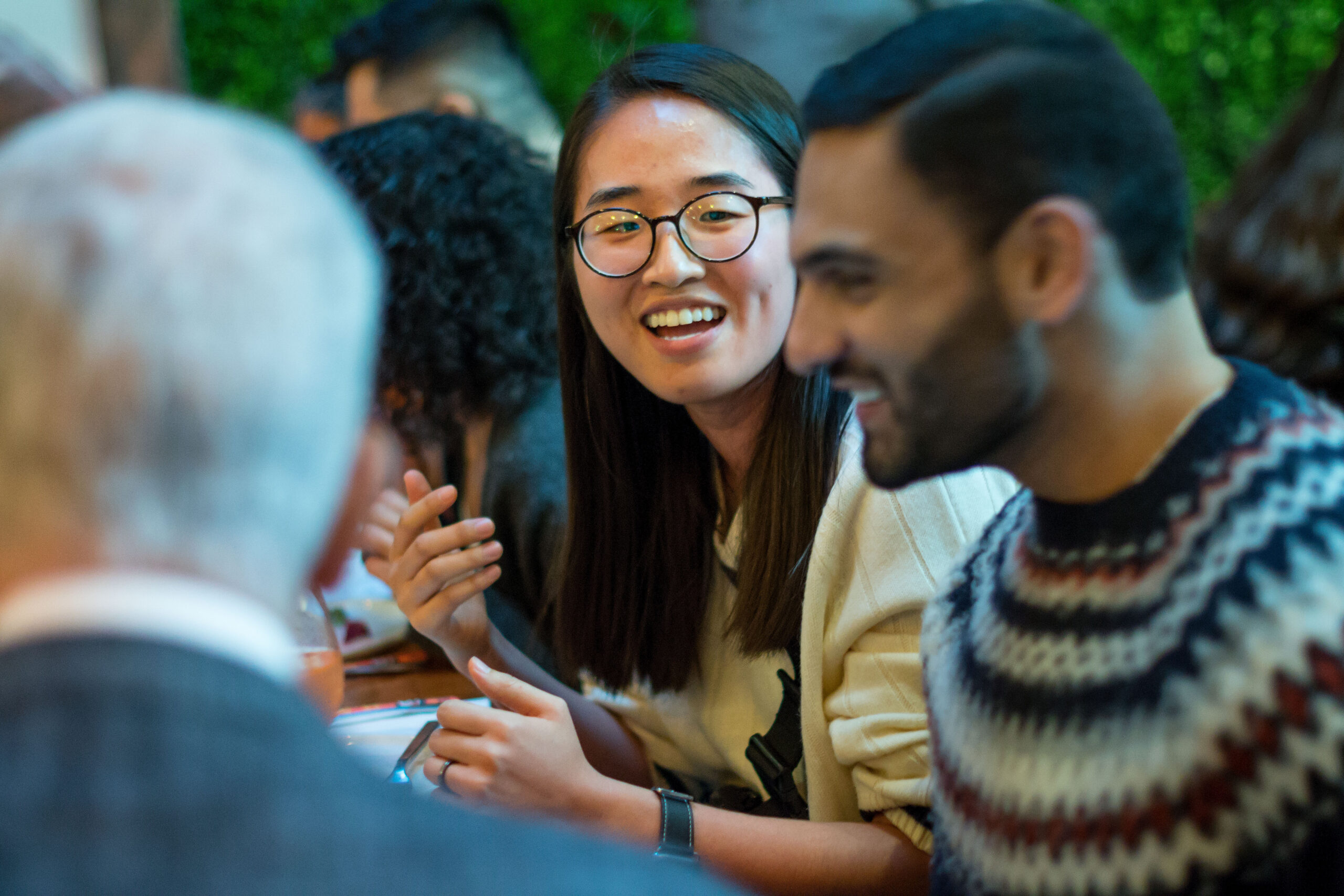 Read more: Kathy Ku Steps into Leadership as PDSFA Chair
Read more: Kathy Ku Steps into Leadership as PDSFA Chair- Board of Directors
- Fellowship News
Kathy Ku Steps into Leadership as PDSFA Chair
-
 Read more: Q&A with MD/PhD Student Silvia Huerta Lopez
Read more: Q&A with MD/PhD Student Silvia Huerta LopezQ&A with MD/PhD Student Silvia Huerta Lopez
-
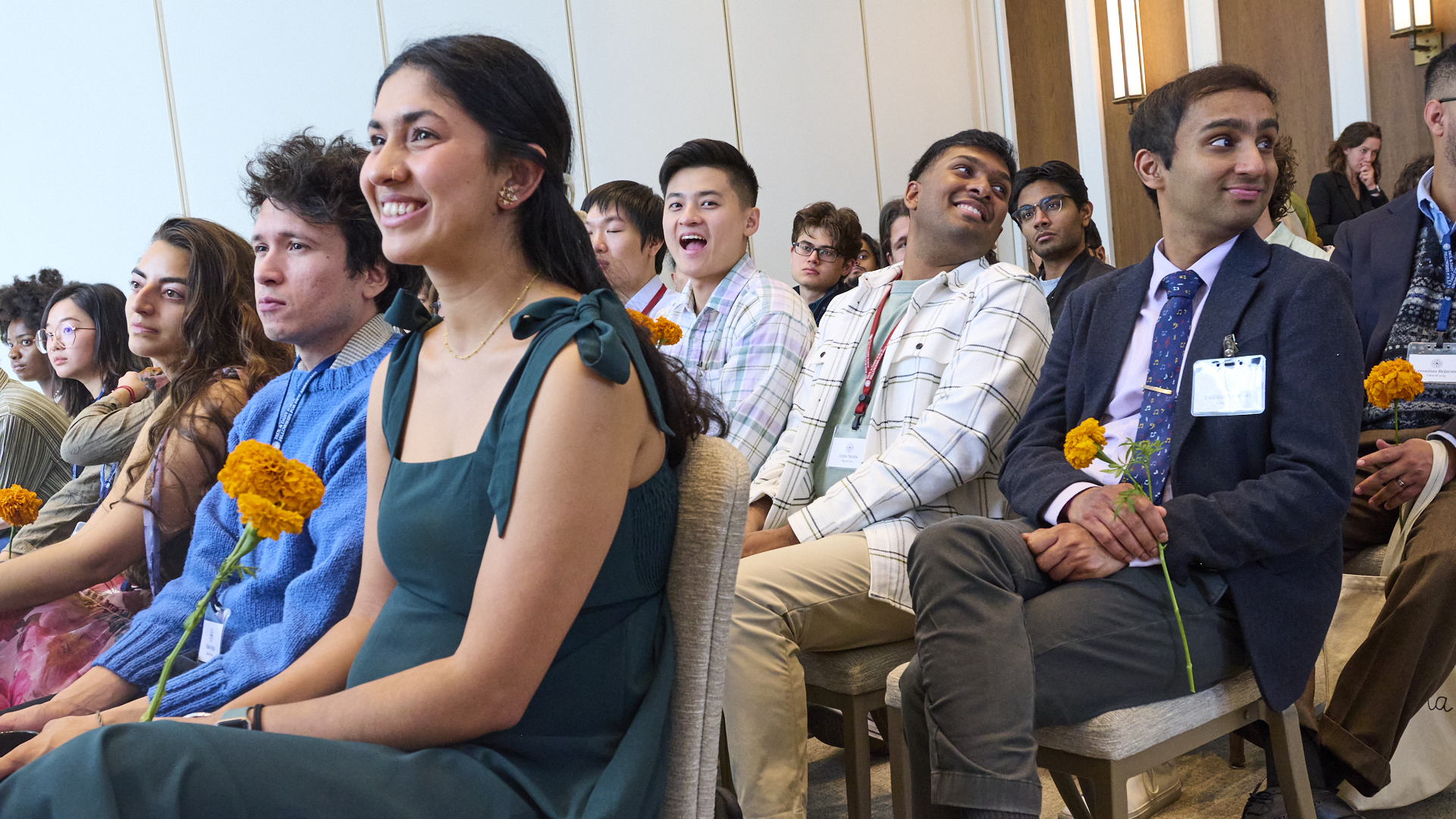 Read more: PD Soros Eligibility Guide for PhD Applicants
Read more: PD Soros Eligibility Guide for PhD Applicants- Applicant Information
PD Soros Eligibility Guide for PhD Applicants
-
 Read more: Watch: Optional Exhibits & Recommendations
Read more: Watch: Optional Exhibits & Recommendations- 2025 Information Sessions
Watch: Optional Exhibits & Recommendations
